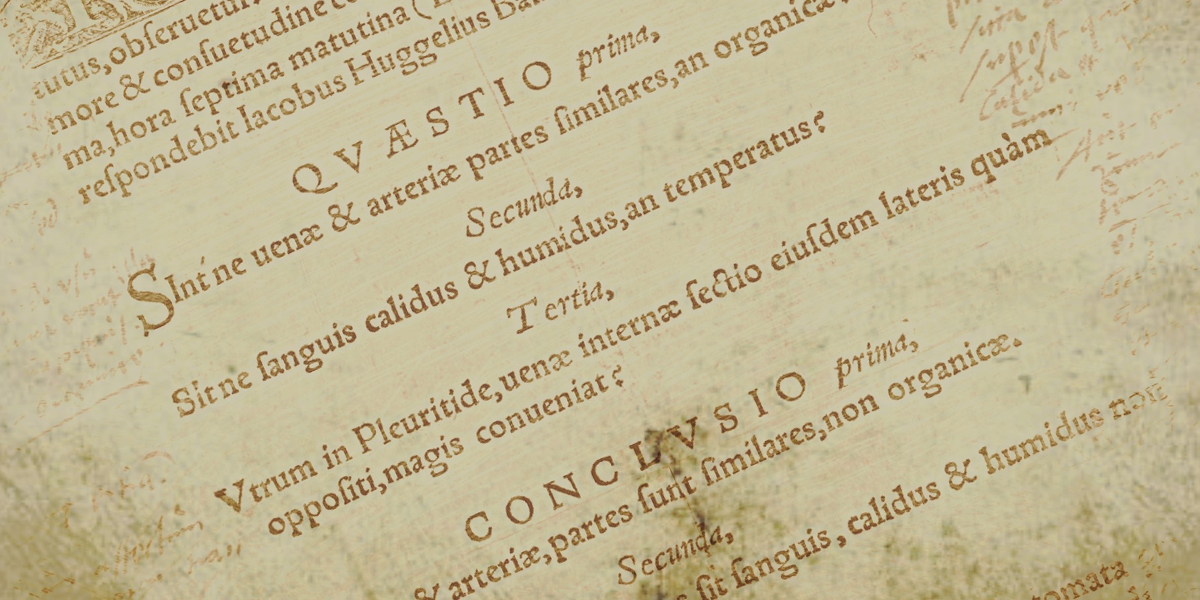When Did Latin Die? And Why?
Have you ever found yourself wondering “where did this word come from?” – well there’s a strong chance that the word derived from Latin.
You’ve probably arrived at this post because you’re interested in when Latin supposedly “died” and why this is the case.
Here at Global Language Services, we’re here to help explain the past, present and future of Latin so that when someone asks “when did Latin die?”, you have the answer!
Latin Origins: Where and When it was Used Most?
Latin is part of the Indo-European family of languages, and the first known use of Latin is said to have been in 6th Century BCE, where an inscription upon a cloak pin reads “Manios me fhefhaked Numasioi” which means “Manius made me for Numerius”. This was identified to have originated from a small group of people who spoke the language of Latin, and lived near the lower river Tiber.
Believed to be a direct derivative of Greek, the first literary recordings of Latin have been noted as 250-100BC. From here the use of spoken Latin increased with the rise of Roman political power, initially in Italy and then through most of Western Europe and parts of coastal Africa.
Amid the classical period of Latin, there were three variations that were established:
- Classical Written Latin.
- Classical Oratorical Latin (public speaking).
- Ordinary Colloquial Latin (regular speaking).
It was colloquial Latin that saw the biggest variations in its use, as it continuously diverged from any classical use, and evolved into what was known as Vulgar Latin.
During the Roman Empire, the development of many of the “Romance Languages” that we know today occurred off the back of Vulgar Latin.
Through the Middle Ages and arguably until recently, Latin found itself predominantly used within literature and religion, and quickly gained a reputation as a status symbol. If you could read and write latin, you were seen as educated (and better than everyone else?!). This is a construct dating back as far as 200BC where it was known as the “speech of good families”.

When Did Latin Stop Being Used As Popularly?
Now Latin didn’t just die a death and cease to exist. It had a gradual departure from everyday use, slowly and over time – and even at that, we still have Latin literature today!
200-500AD – The Death of Vulgar Latin
As we mentioned, Latin developed into numerous variations.
For example the well-known tribes of Caesar, Cicero, Vergil and Tacitus wrote iconic pieces of literature, which almost cemented their stylings as the literary language, moving away from Vulgar Latin.
Scholars then say that between 200-500AD other pieces of literature came about that were close derivatives of the classic standard, with some being deliberately closer to more casual speech patterns.
768-814AD – A Revival With Charlemagne
Historians have since stated that Latin really became a dead language around 600-750AD. This is in line with the diminishing Roman Empire where few people could actually read, and the Italian, French and Spanish spoken language was rapidly evolving.
It was at this time that Latin was predominantly spoken, written and read in religious settings like the Roman Catholic Church and by Monks in Ireland.
However, there was then a small period where Latin was resurrected on the basis of Roman Emperor Charlemagne promoting education as a good thing and encouraging the teaching and use of Latin.
Mid-1300s – The Plague Kills Off Latin Speaking Scholars
His death brought another decline in its use, but written Latin continued to be taught.
The Mid 14th Century saw the Black Death Plague, the worst pandemic in human history that killed numerous scholars and professors, having a negative ripple effect on the entire education system.
Meanwhile, during this pandemic Italian poet Petrach came to the conclusion that essentially everyone who came before him and used Latin was an idiot, leading to another renaissance.
15/16th Century – The Renaissance Boosts Its Use
This renaissance spread through Italy, France and eventually to Britain, where more people started reading Latin literature from classical authors.
It is also at this time (1450-1600’s) that greater developments within science were seen, and to regulate findings and encourage international research, Latin terminology was put in place.
Mid-1960s to Present Day – Falling Out Of Use
From this point, and up until the 19th Century, it was a requirement for all who attended college (males of a white, privileged background) to learn the language of Latin, and also Greek.
When the mid 60’s hit, and peace and love spread through younger generations, they decided they had better things to do than learn Latin – essentially leading to its untimely death.
Today, almost no one speaks Latin (well) and very few people are skilled readers or writers of the language.

How Did Latin Affect the Development of Other Languages
Like we said there were initially three variations of Latin, but that was primarily determined by there being three different uses (writing, public speaking and spoken language). As we know, Latin was largely inspired from Greek, but what languages did Latin influence?
Well, Vulgar Latin was predominantly used in the 4th and 5th Century, as it was easier to understand and was more relatable, chattier if you will. As the Roman Empire evolved, so did Vulgar Latin, and the Romans spread their language which blended with other languages already being spoken, which eventually led to the development of the “romance languages”.
The romance languages are Italian, French, Spanish, Portuguese and Romanian, and are known to have great relation to one another – if you learn one, you could easily learn all five.
A prime example of this is the Latin word for “Grass”, “herba”. This clearly influenced our English word “herb”, and has translated over to the other five “herbe” (French), “hierba” (Spanish), “erba” (Italian), “erva” (Portuguese) and “iarbã” (Romanian) – all of which mean the same thing, but have their own spelling and pronunciations.
How Latin Lives on Today
It goes without saying that the influence of Latin goes further than the romance languages – much further.
The English language is the most extensive in the world, with over 1 million words available to us. However, not all of these words are ours – in fact some are borrowed… from Latin.
In fact if it wasn’t for Latin and its subsequent influence on the romance languages, we wouldn’t have many of the words we use today like alligator and sombrero from Spanish and Portuguese, or violin and cameo from Italian.
There are numerous sayings and phrases that have come directly from Latin, and we say them in Latin but have our English meanings for them, just like the ones listed below:
| Latin | How we use it Today |
| Ad Hoc | Essentially meaning “To this”, i.e. to do something for a particular purpose. |
| Alibi | Translates to “Elsewhere”, and commonly used in criminal justice settings to give a reason as to why you are not involved with a crime. |
| Bonus | We all know what this means, and don’t actually need a translation – but it is a good thing, and usually always means extra! (We also borrowed extra). |
| Carpe Diem | “Seize the day” – always used to motivate others to make the most of their time. |
| E.G (exempli gratia) | Used in everyday language, for example is something we’ve taken straight from Latin. |
| Ergo | An adverb meaning therefore, one of the few who has kept its Latin meaning and use directly. |
| Impromptu | Derived from the Latin phrase promptu, this is another one we use everyday to describe something as spontaneous. |
| Multi | Plural of the Latin adjective multus, meaning many i.e. multicoloured or multicultural (we also borrowed i.e.) |
| Status quo | Another one we use exactly as is, this phrase translates to state in which, loosely meaning the existing state of affairs. |
| Versus | In Latin this means against or toward, which we now commonly use to put two opposing ideas against one another. |

Is Latin Really Dead then?
So, we can now answer the question of “is Latin really dead?” and we (along with many others) would argue that no, Latin is not really dead.
Yes, its use has dwindled over the years, it isn’t commonly spoken as a first language, and it’s not really that useful of a language to learn for that reason alone.
BUT, for the sheer fact that Latin essentially has been the father to five romance language babies, we still use it in our everyday speech today almost exactly.
So, how can something be dead if you still use it daily? It can’t be. Therefore Latin’s time of death remains undetermined.
For help with your modern-day translation and interpretation needs, feel free to contact our experts at GLS today!





